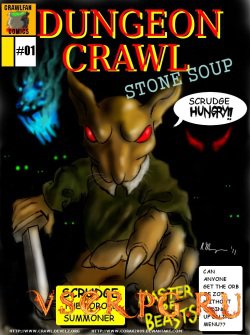

This makes retreat dangerous, but also means that the player can continually regenerate dungeon levels in order to build their character’s skills or to look for special loot. The most notable design characteristic of these games is that unlike Nethack and many others, a new dungeon level is generated any time you use a stairway, meaning you can never return to a dungeon level once you leave it. Angband variants show a lot of similarities to Dungeons & Dragons in their character and combat systems, and I imagine this will appeal to many fans of the tabletop game. The original Angband began in 1990, as an extension of Umoria, a roguelike heavily inspired by the works of J.R.R. The one I tried was called ZangbandTK, but there are others. I haven’t spent much time with this family of games either, so I’m not sure if there’s a “definitive” variant or not. These will give a better sense of how rewarding the game can be than anything I could write. If Nethack sounds interesting to you and you don’t mind a few spoilers, I’d recommend looking for some “ascension posts” which describe a player’s first win. While I’ve never really gotten deep into the game, I can definitely understand the appeal. There are plenty of guides online to help you out, but the onus is on you to learn it. Unfortunately, this complexity means Nethack has one of the steepest learning curves of any roguelike. Even veteran players who have played for years can discover some previously unknown behavior. The game is also packed with secrets, from unexpected uses for items to various ways to bypass certain special enemies to tricks involving the shopkeepers, and so on. You can grow crops, dig out tunnels, cause explosions, become permanently invisible, transform into other creatures, and much, much more. You can train your pet to steal from shops for you. You can engrave messages into walls of the dungeon. The level of simulation in Nethack is simply staggering. The game opts for basic ASCII graphics (although there are options for tilesets), dungeon levels are single-screen, and it utilizes the traditional style of keyboard commands. Indeed, the influence of the original Rogue is clearly present in Nethack. Development of Nethack included online collaboration over Usenet, therefore the “net” prefix was added to the title. The name arose because the game was based on an earlier roguelike called Hack, which was in turn based on the original Rogue. Those unfamiliar with the game often assume it has something to do with hacking or computers, but this is not the case it’s a traditional fantasy-themed roguelike, although there’s a lot of humor mixed in. This means that Nethack is also that most rare of beasts: an (essentially) completed roguelike. But the last gameplay changes were made in 2003, with more recent updates including additional tilesets and support for more operating systems. It’s also one of the longest-running, with its first version released in 1987, followed by continual communal development that is still active today. Nethack is possibly the most famous roguelike. While the title of the post gives away my personal pick of the three, I’m going to briefly discuss the other two in comparison. There are three main options: Nethack, Angband variants, and Dungeon Crawl Stone Soup. The steep learning curves of the most complex roguelikes mean that players will usually pick a favorite and stick to it, as recalibrating one’s playstyle to a different game is difficult. It’s time for the next would-be hero’s story. Either way, that particular character is gone, living on only as a fond (or humorous) memory. Or maybe your character’s death was actually rather stupid and humorous instead. Just because your character eventually succumbed to overwhelming odds doesn’t mean he or she was not a great hero, whose last adventure became a legend for the ages. But even if they do not, they’ll still fondly remember their best attempts, sagas of their own making that were not pre-determined by the developers. Finally managing to win one of these games is a truly momentous event, one that many players will never achieve. These are the games that can last you an entire lifetime, with deep, complex systems that take years to fully learn and master. Older versions are all archived here, however, if you want to try any of those.Īs I mentioned in my introduction to roguelikes, most players eventually gravitate towards the most complex games. EDIT: If you are reading this from the FUTURE, please note that Dungeon Crawl Stone Soup was on version 0.9 at the time of writing, and the game has changed significantly since.


 0 kommentar(er)
0 kommentar(er)
